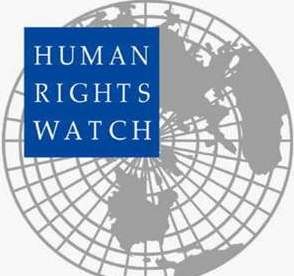YEREVAN — Thousands of children in Armenia are needlessly separated from their parents and placed in institutions due to disability or poverty, Human Rights Watch said in a report released late in February. The government should urgently provide community-based services and quality, inclusive education so that all children, including children with disabilities, can grow up in a family, the group stressed.
The 102-page report, “‘When Will I Get to Go Home?’ Abuses and Discrimination against Children in Institutions and Lack of Access to Quality Inclusive Education in Armenia,” documents how thousands of children in Armenia live in orphanages, residential special schools for children with disabilities, and other institutions. They often live there for years, separated from their families. More than 90 percent of children in residential institutions in Armenia have at least one living parent. Human Rights Watch also found that the Armenian government is not doing enough to ensure quality, inclusive education for all children. Inclusive education involves children with disabilities studying in their community schools with reasonable support for academic and other achievement.
“The government of Armenia has made some bold commitments to reduce the number of children in institutions, but needs to make sure those promises are backed by serious, sustained action,” said Jane Buchanan, associate Europe and Central Asia director at Human Rights Watch and author of the report. “All children have the right to grow up in a family, and government and donor resources should support families and children, not large institutions.”
Children have the right not to be unnecessarily separated from their parents. Neither poverty nor disability can be a justification or a basis for placement of a child in an institution.
Residential institutions often serve as the main distributor of social services to families facing difficult life circumstances such as poverty, unemployment, poor housing, health issues, or disability. Services and staff are often concentrated in institutions, rather than available and accessible in communities, including for the rehabilitation and education of children with disabilities. This compels many families to send their children to residential institutions, even when they would prefer to raise them at home.
The government aims to move children out of at least 22 residential institutions by 2020 and transform these buildings into centers for community-based services. Some have already been converted. However, the three orphanages that exclusively house children with disabilities will continue to operate. Failing to provide family-based care for children with disabilities on an equal basis with other children is discriminatory and should be ended immediately, Human Rights Watch said.










